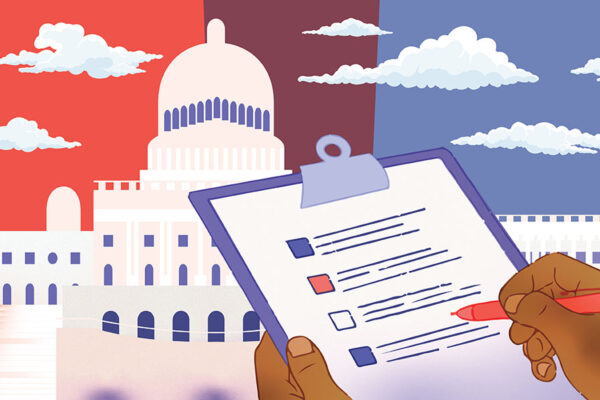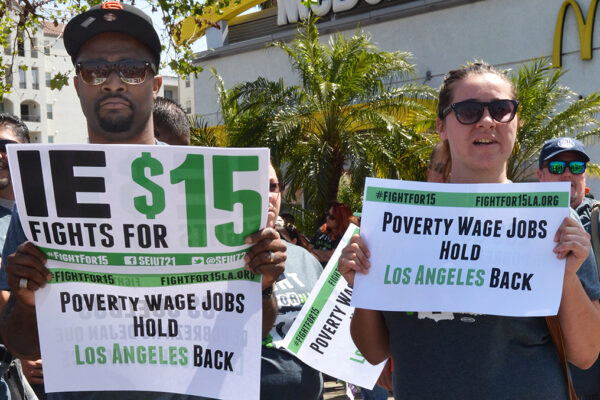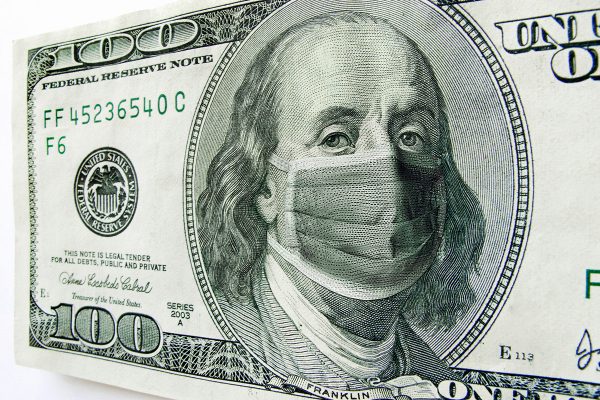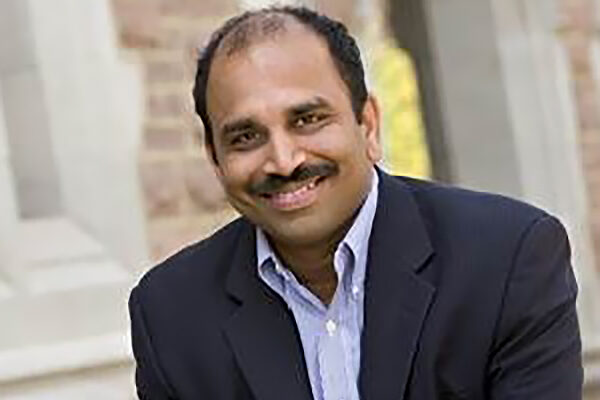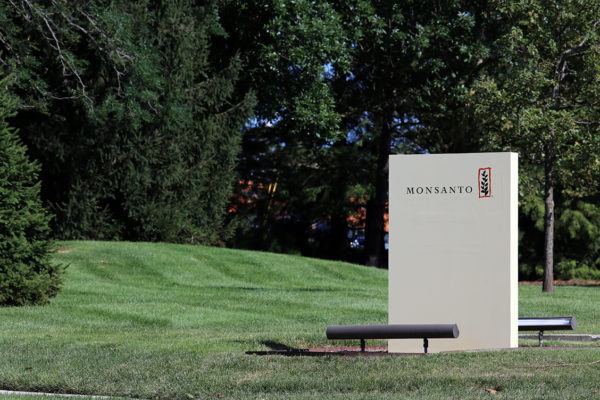Gopalan researches issues in theoretical and empirical corporate finance. Specifically he examines questions related to a firm’s choice between public and private ownership, the benefits of a business group structure in emerging economies and about firm-bank relationships and the syndicated loan market.

Radhakrishnan Gopalan
Professor of Finance
Contact Information
- Phone: 314-935-9196
- Email: Gopalan@wustl.edu
- Website: Website
Media Contact
In the media
As home values rise, nowhere in St. Louis is hotter than North County
Radhakrishnan Gopalan, professor of finance
Missouri unemployment grows amid cutoff of federal benefits
Radhakrishnan Gopalan, professor of finance
Culture clash foiled AT&T’s big bet on media convergence
Radhakrishnan Gopalan, professor of finance
Biden’s $15 minimum wage push could be ‘death knell’ for small businesses, job growth
Radhakrishnan Gopalan, professor of finance
More stimulus checks, unemployment assistance | What’s in the relief bill for you
Radhakrishnan Gopalan, professor of finance
It’s now been 11 years since we raised the federal minimum wage
Radhakrishnan Gopalan, Professor of Finance
Rise in COVID-19 cases worries tourist destination Branson
Radhakrishnan Gopalan, professor of finance
Investors want women on corporate boards. And they’re getting them
Radhakrishnan Gopalan, professor of finance
What You Need To Know About Coronavirus Stimulus Checks
Radhakrishnan Gopalan, professor of finance
These firms have an outsize influence on Corporate America. The SEC needs to regulate them
Radhakrishnan (Radha) Gopalan, professor of finance; Todd Gormley, associate professor of finance; and Todd Milbourn, the Hubert C. & Dorothy R. Moog Professor of Finance
Shell is tying executive pay to carbon emissions. Here’s why it could create real impact
Radhakrishnan (Radha) Gopalan, professor of finance; John Horn, professor of practice in economics; and Todd Milbourn, the Hubert C. & Dorothy R. Moog Professor of Finance
As Wall Street Has Made Gains, So Have CEO Salaries
Radhakrishnan (Radha) Gopalan, associate professor of finance
Professors explore dark side of performance-based pay
Radhakrishnan (Radha) Gopalan, associate professor of finance; and Todd Milbourn, the Hubert C. & Dorothy R. Moog Professor of Finance
Stories
This is not the time to raise federal minimum wage
Radhakrishnan Gopalan, professor of finance at the Olin Business School at Washington University in St. Louis, says President Joe Biden’s plan to raise the federal minimum wage to $15 per hour is too aggressive. His research shows raising the minimum wage now could slow job growth.
The first 100 Biden/Harris days
Faculty experts from across Washington University in St. Louis draw upon their research, their instruction, their experience and their thought leadership to proffer insight and ideas for the new administration, the new beginning.
We need economic rescue, and we need it now
After months of failed negotiations that have left many Americans, businesses and the economy in the lurch, lawmakers are scrambling to reach a deal on an economic stimulus plan that could top $900 billion. If Congress passes the deal, will it do enough to help struggling Americans and businesses stay afloat? To answer that question, three business and economics experts at Washington University in St. Louis shared their thoughts on the proposed plan, what lawmakers got right, what is missing and what ticking time bombs remain.
Wanted: Board of directors’ member with bankruptcy experience
Olin Business School researchers were part of a team that learned firms take more risks after a member of their board of directors undergoes a bankruptcy at another firm where they serve as a director. The co-authors discovered such risk-taking usually occurs when this particular director both experienced a quick, less-costly bankruptcy elsewhere and serves in a position of greater influence.
Home inequity: Study finds income, job rut for millions in U.S.
At a time when evictions and mortgage defaults have been likened to an oncoming tsunami across America, a big-data study of loan-to-value ratios in the wake of the 2007-08 recession carries a cautionary forecast for vexing economic weather ahead: The higher a worker’s outstanding mortgage relative to their home value, the worse their future income growth and job mobility.
Eviction moratoriums are incomplete solution
A federal moratorium on evictions is just one piece of the puzzle. Without comprehensive solutions, we could be facing a repeat of the 2007-08 financial crisis, said Radhakrishnan Gopalan, a finance expert at Washington University in St. Louis who has studied the effect of health insurance on home payment delinquency.
CFPB, despite ruling, will blow with presidential wind
A U.S. Supreme Court ruling June 29 won’t alter the fledgling Consumer Financial Protection Bureau because it already morphed during the first decade of its existence to where it falls under the philosophical whim of each presidential administration, says an Olin Business School scientist at Washington University in St. Louis.
Minimum wage increases a mixed bag, but ‘not a good idea’ amid crisis
If the post-pandemic economic return includes minimum-wage increases across a few or many states, research led by Washington University in St. Louis scientists in the Olin Business School suggests that some positive and negative effects for U.S. workers follow in the two years after implementation.
Federal package ‘not enough’
The $2 trillion plan to prop up a pandemic-reeling United States, amid the news that there were 3.3 million unemployment claims lodged in the previous week, is expected to pass the House on March 27. An array of Washington University in St. Louis experts offer perspectives on the plan.
Handing out checks gives ‘no overall economic benefit’
The U.S. Senate, with significant prodding from the Trump administration, is working on a plan to directly provide cash assistance to millions of Americans amid the economic fallout from the COVID-19 pandemic. Experts in economics and finance from Washington University in St. Louis’ Olin Business School weigh in on how it could help housing and households and maybe pay some bills — but still not answer the problems at hand.
Olin faculty evaluate coronavirus on U.S. businesses, economy
Olin Business School faculty at Washington University in St. Louis offer perspectives on the economic, financial and everyday business reactions to the novel coronavirus outbreak.
These firms have an outsize influence on Corporate America. The SEC needs to regulate them
Given the ever-increasing reliance on the few players in the proxy advisory industry, we believe we are past due for some increased oversight, accountability and transparency in this space.
Plan will reduce the allure of home ownership
Overall, aspects of the tax-reform package will reduce the attractiveness of home ownership and mortgages, and it may even adversely affect home prices going forward.
If Obamacare gets replaced, will this study still apply?
If you are on Obamacare, you are likely a better tenant or homeowner. Families who get health insurance through the Affordable Care Act (ACA) are significantly more likely to make their rent and mortgage payments than are those who remain uninsured, suggests a new study from the Brown School and Olin Business School.
WashU Expert: Why Monsanto needed to accept the Bayer deal
Pharma giant Bayer has acquired St. Louis-based Monsanto. After months of negotiation, the German company went back to the bargaining table this week, and on Sept. 14 the seed firm’s board approved the $66 billion cash offer. Radhakrishnan Gopalan, associate professor of finance at Olin Business School, said Monsanto needed to accept the deal.
The dark side of CEO incentive-based pay
When a publicly traded company meets a pay-for-performance target, it may be lauded by Wall Street investors, however, new research from Washington University in St. Louis shows it can also be cause for concern.
WashU Expert: Numbers tell the story on Monsanto strategy
Monsanto’s proposed move to the U.K. could indicate a corporate inversion strategy. Radhakrishnan (Radha) Gopalan, PhD, associate professor of
finance in the Olin Business School, takes a closer look at the numbers.

